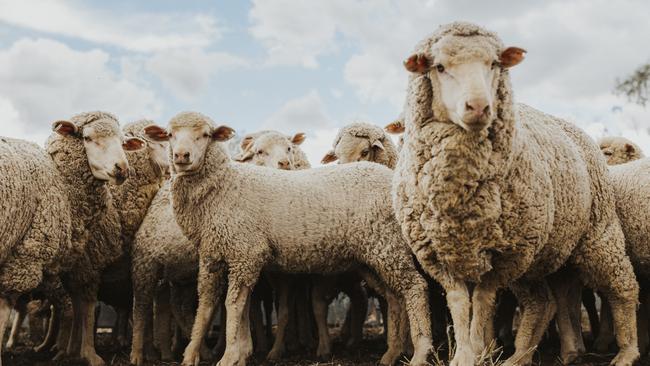Activist influence, “very real” class action risk must be considered by live sheep panel
The nation’s livestock exporters have urged an independent panel to probe activist underpinnings to a proposed ban on the live sheep trade.
The depth of influence animal activists’ may have had on the federal government’s decision to ban live sheep exports must be investigated by an independent panel formed to advise on ending the trade.
In its submission to the panel, the Australian Livestock Exporters Council also said the Albanese government faced the “very real” prospect of a class action for halting the trade, along with international challenges through the World Trade Organisation.
The government is progressing an export ban after pledging to do so in the run-up to the past two federal elections, claiming the trade had lost its social license.
However, in an 18-page submission, ALEC chair David Galvin said it was appropriate for the panel to examine all facets of how the policy came into being, believing it would be “highly concerning” if Federal Labor prioritised activist agendas.
He also cited data from LiveCorp’s Voconiq survey indicating growing community acceptance of the industry as it worked to reform its tarnished image.
“All agricultural industries have, at some point, become the target of activist agendas that do not portray our industries truthfully. Any accession to their agenda undermines all Australian agricultural industries,” he said.

Mr Galvin said the ban would trigger “significant and lasting damage”, particularly in Western Australia from where 99.2 per cent of the 502,758 live sheep were exported in 2022.
WA live export producers currently have limited options with no scalable alternative market for the volumes of sheep types currently supplied for live export, falling domestic prices and slaughter capacity unable to absorb additional sheep numbers.
Mr Galvin said the government must demonstrate to the panel why there was no alternative to a ban.
“ALEC puts to the panel that it is very much within its scope to consider the international trade ramifications of this policy and alerts the panel that the risks of a WTO challenge and class actions are very real.” he said.
“If governments are concerned about other domestic policy goals, such as protecting animal welfare, the principle in international trade law is that governments should take the least restrictive policy measures to achieve the desired outcomes.”
Mr Galvin said the phase-out was politically contested, with the Coalition promising to reinstate the trade if reelected, and the “most extreme policy restriction” should be reserved for only the most severe cases of harm prevention.
He also claimed WTO laws were largely unsettled on the issue of export bans, “particularly if they are discriminatory to trading partners, apply moral judgment or are questionable in necessity”.
ALEC suggested stopping live sheep exports could jeopardise future free trade or economic partnership agreements with the Middle East’s Gulf Corporation Council and have knock-on impacts on other commodities, such as feed grain, dairy and horticultural products.
Currently, Australian livestock exports enter GCC member states with zero tariffs applied while frozen, boxed and chilled meat and other agricultural commodities face significant tariffs.




